Military testimonies split in trial
입력 2025.02.05 (00:07)
읽어주기 기능은 크롬기반의
브라우저에서만 사용하실 수 있습니다.
[Anchor]
As you have seen, the testimonies of the military commanders who appeared as witnesses today (2.4) differed significantly from the contents of the prosecution's indictment.
We will discuss the reasons for this and its potential impact on the impeachment trial with our legal correspondent, Kim Tae-hoon.
Welcome, Kim.
First, we should consider that the military personnel effectively exercised their right to remain silent, right?
[Reporter]
Yes, former Capital Defense Commander Lee Jin-woo and former Defense Counterintelligence Commander Yeo In-hyung mostly did not answer sensitive questions.
They also remained silent, saying they hoped for understanding in response to questions from the constitutional court justices.
It is interpreted that they are concerned about being punished for perjury if they provide false testimony and that it is not easy to predict how their testimonies in the constitutional court might affect future criminal trials.
[Anchor]
In this case, won't the constitutional justices lack sufficient information to make their judgments?
[Reporter]
That is not the case.
First of all, the Constitutional Court has requested investigation materials from the prosecution and police regarding the ongoing investigations.
They have already received part of this information yesterday.
It is reported that this includes testimonies and evidence from various individuals, in addition to the commanders facing charges of important duties related to insurrection, and the constitutional justices are expected to comprehensively assess this to determine the unconstitutionality of the declaration of martial law.
[Anchor]
Today, the person who consistently testified was former National Intelligence Service Deputy Chief Hong Jang-won.
Is it because he is not currently on trial?
[Reporter]
Yes, former NIS First Deputy Chief Hong Jang-won, who is currently not on trial among the witnesses today, responded to the question of whether President Yoon said, "Arrest them all," by saying, "I remember it that way."
He also mentioned that when he recalled the list of politicians to be arrested, it came to about 16 people.
[Anchor]
President Yoon has repeatedly stated, "Nothing happened during the martial law period."
What is his intention?
[Reporter]
President Yoon emphasized that there were no injuries or arrests during this emergency martial law, thus asserting that "nothing happened."
He stated that since nothing occurred, discussions about whether there were orders are baseless and lack substance, and he mentioned that the troops that entered the National Assembly were very few and were chased out by fire extinguishers.
In response, Jung Chung-rae, head of the National Assembly's impeachment prosecution team, countered, "If nothing happened, there would be no constitutional trial today," and asked, "If nothing happened, should military generals be arrested and tried?"
President Yoon's legal responsibilities will be determined separately in criminal trials, and South Korean criminal law stipulates that in cases of insurrection, not only attempts but also preparations and conspiracy stages are punishable.
Meanwhile, President Yoon's side has filed a request to cancel his detention with the Seoul Central District Court, which is handling his insurrection leader charges.
[Anchor]
Thank you, Kim Tae-hoon.
As you have seen, the testimonies of the military commanders who appeared as witnesses today (2.4) differed significantly from the contents of the prosecution's indictment.
We will discuss the reasons for this and its potential impact on the impeachment trial with our legal correspondent, Kim Tae-hoon.
Welcome, Kim.
First, we should consider that the military personnel effectively exercised their right to remain silent, right?
[Reporter]
Yes, former Capital Defense Commander Lee Jin-woo and former Defense Counterintelligence Commander Yeo In-hyung mostly did not answer sensitive questions.
They also remained silent, saying they hoped for understanding in response to questions from the constitutional court justices.
It is interpreted that they are concerned about being punished for perjury if they provide false testimony and that it is not easy to predict how their testimonies in the constitutional court might affect future criminal trials.
[Anchor]
In this case, won't the constitutional justices lack sufficient information to make their judgments?
[Reporter]
That is not the case.
First of all, the Constitutional Court has requested investigation materials from the prosecution and police regarding the ongoing investigations.
They have already received part of this information yesterday.
It is reported that this includes testimonies and evidence from various individuals, in addition to the commanders facing charges of important duties related to insurrection, and the constitutional justices are expected to comprehensively assess this to determine the unconstitutionality of the declaration of martial law.
[Anchor]
Today, the person who consistently testified was former National Intelligence Service Deputy Chief Hong Jang-won.
Is it because he is not currently on trial?
[Reporter]
Yes, former NIS First Deputy Chief Hong Jang-won, who is currently not on trial among the witnesses today, responded to the question of whether President Yoon said, "Arrest them all," by saying, "I remember it that way."
He also mentioned that when he recalled the list of politicians to be arrested, it came to about 16 people.
[Anchor]
President Yoon has repeatedly stated, "Nothing happened during the martial law period."
What is his intention?
[Reporter]
President Yoon emphasized that there were no injuries or arrests during this emergency martial law, thus asserting that "nothing happened."
He stated that since nothing occurred, discussions about whether there were orders are baseless and lack substance, and he mentioned that the troops that entered the National Assembly were very few and were chased out by fire extinguishers.
In response, Jung Chung-rae, head of the National Assembly's impeachment prosecution team, countered, "If nothing happened, there would be no constitutional trial today," and asked, "If nothing happened, should military generals be arrested and tried?"
President Yoon's legal responsibilities will be determined separately in criminal trials, and South Korean criminal law stipulates that in cases of insurrection, not only attempts but also preparations and conspiracy stages are punishable.
Meanwhile, President Yoon's side has filed a request to cancel his detention with the Seoul Central District Court, which is handling his insurrection leader charges.
[Anchor]
Thank you, Kim Tae-hoon.
■ 제보하기
▷ 카카오톡 : 'KBS제보' 검색, 채널 추가
▷ 전화 : 02-781-1234, 4444
▷ 이메일 : kbs1234@kbs.co.kr
▷ 유튜브, 네이버, 카카오에서도 KBS뉴스를 구독해주세요!
- Military testimonies split in trial
-
- 입력 2025-02-05 00:07:17
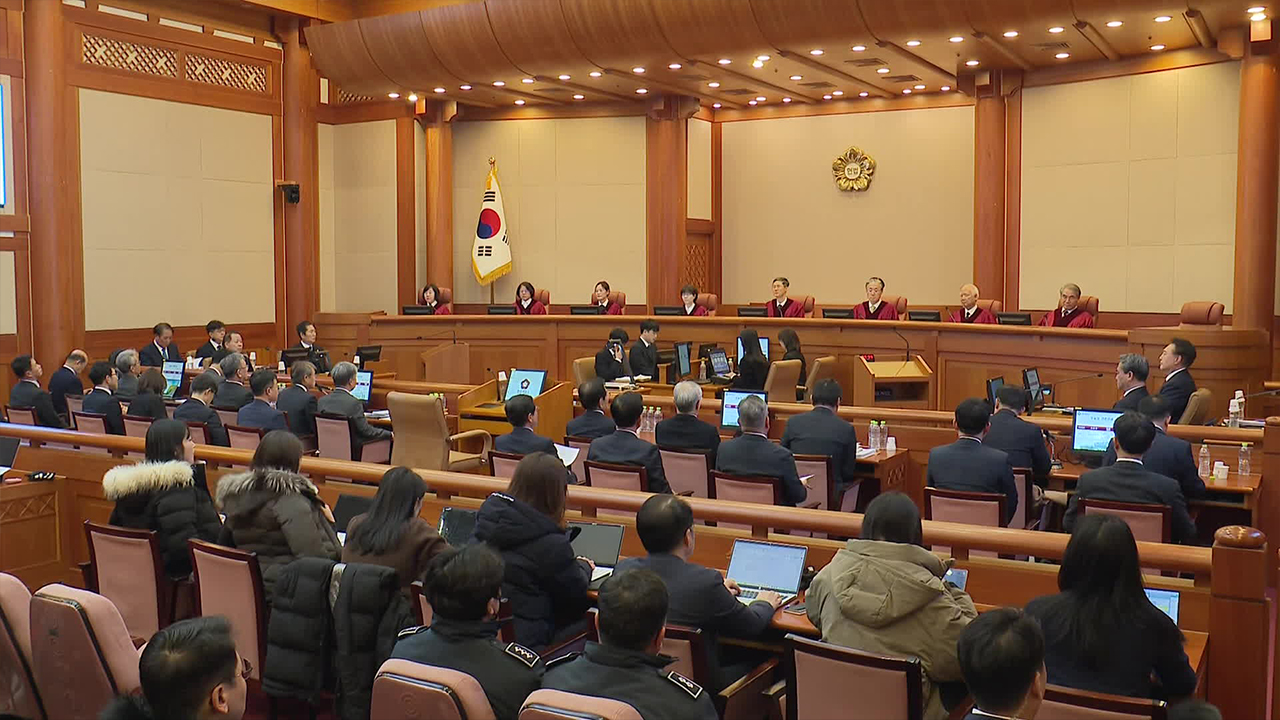
[Anchor]
As you have seen, the testimonies of the military commanders who appeared as witnesses today (2.4) differed significantly from the contents of the prosecution's indictment.
We will discuss the reasons for this and its potential impact on the impeachment trial with our legal correspondent, Kim Tae-hoon.
Welcome, Kim.
First, we should consider that the military personnel effectively exercised their right to remain silent, right?
[Reporter]
Yes, former Capital Defense Commander Lee Jin-woo and former Defense Counterintelligence Commander Yeo In-hyung mostly did not answer sensitive questions.
They also remained silent, saying they hoped for understanding in response to questions from the constitutional court justices.
It is interpreted that they are concerned about being punished for perjury if they provide false testimony and that it is not easy to predict how their testimonies in the constitutional court might affect future criminal trials.
[Anchor]
In this case, won't the constitutional justices lack sufficient information to make their judgments?
[Reporter]
That is not the case.
First of all, the Constitutional Court has requested investigation materials from the prosecution and police regarding the ongoing investigations.
They have already received part of this information yesterday.
It is reported that this includes testimonies and evidence from various individuals, in addition to the commanders facing charges of important duties related to insurrection, and the constitutional justices are expected to comprehensively assess this to determine the unconstitutionality of the declaration of martial law.
[Anchor]
Today, the person who consistently testified was former National Intelligence Service Deputy Chief Hong Jang-won.
Is it because he is not currently on trial?
[Reporter]
Yes, former NIS First Deputy Chief Hong Jang-won, who is currently not on trial among the witnesses today, responded to the question of whether President Yoon said, "Arrest them all," by saying, "I remember it that way."
He also mentioned that when he recalled the list of politicians to be arrested, it came to about 16 people.
[Anchor]
President Yoon has repeatedly stated, "Nothing happened during the martial law period."
What is his intention?
[Reporter]
President Yoon emphasized that there were no injuries or arrests during this emergency martial law, thus asserting that "nothing happened."
He stated that since nothing occurred, discussions about whether there were orders are baseless and lack substance, and he mentioned that the troops that entered the National Assembly were very few and were chased out by fire extinguishers.
In response, Jung Chung-rae, head of the National Assembly's impeachment prosecution team, countered, "If nothing happened, there would be no constitutional trial today," and asked, "If nothing happened, should military generals be arrested and tried?"
President Yoon's legal responsibilities will be determined separately in criminal trials, and South Korean criminal law stipulates that in cases of insurrection, not only attempts but also preparations and conspiracy stages are punishable.
Meanwhile, President Yoon's side has filed a request to cancel his detention with the Seoul Central District Court, which is handling his insurrection leader charges.
[Anchor]
Thank you, Kim Tae-hoon.
As you have seen, the testimonies of the military commanders who appeared as witnesses today (2.4) differed significantly from the contents of the prosecution's indictment.
We will discuss the reasons for this and its potential impact on the impeachment trial with our legal correspondent, Kim Tae-hoon.
Welcome, Kim.
First, we should consider that the military personnel effectively exercised their right to remain silent, right?
[Reporter]
Yes, former Capital Defense Commander Lee Jin-woo and former Defense Counterintelligence Commander Yeo In-hyung mostly did not answer sensitive questions.
They also remained silent, saying they hoped for understanding in response to questions from the constitutional court justices.
It is interpreted that they are concerned about being punished for perjury if they provide false testimony and that it is not easy to predict how their testimonies in the constitutional court might affect future criminal trials.
[Anchor]
In this case, won't the constitutional justices lack sufficient information to make their judgments?
[Reporter]
That is not the case.
First of all, the Constitutional Court has requested investigation materials from the prosecution and police regarding the ongoing investigations.
They have already received part of this information yesterday.
It is reported that this includes testimonies and evidence from various individuals, in addition to the commanders facing charges of important duties related to insurrection, and the constitutional justices are expected to comprehensively assess this to determine the unconstitutionality of the declaration of martial law.
[Anchor]
Today, the person who consistently testified was former National Intelligence Service Deputy Chief Hong Jang-won.
Is it because he is not currently on trial?
[Reporter]
Yes, former NIS First Deputy Chief Hong Jang-won, who is currently not on trial among the witnesses today, responded to the question of whether President Yoon said, "Arrest them all," by saying, "I remember it that way."
He also mentioned that when he recalled the list of politicians to be arrested, it came to about 16 people.
[Anchor]
President Yoon has repeatedly stated, "Nothing happened during the martial law period."
What is his intention?
[Reporter]
President Yoon emphasized that there were no injuries or arrests during this emergency martial law, thus asserting that "nothing happened."
He stated that since nothing occurred, discussions about whether there were orders are baseless and lack substance, and he mentioned that the troops that entered the National Assembly were very few and were chased out by fire extinguishers.
In response, Jung Chung-rae, head of the National Assembly's impeachment prosecution team, countered, "If nothing happened, there would be no constitutional trial today," and asked, "If nothing happened, should military generals be arrested and tried?"
President Yoon's legal responsibilities will be determined separately in criminal trials, and South Korean criminal law stipulates that in cases of insurrection, not only attempts but also preparations and conspiracy stages are punishable.
Meanwhile, President Yoon's side has filed a request to cancel his detention with the Seoul Central District Court, which is handling his insurrection leader charges.
[Anchor]
Thank you, Kim Tae-hoon.
-
-
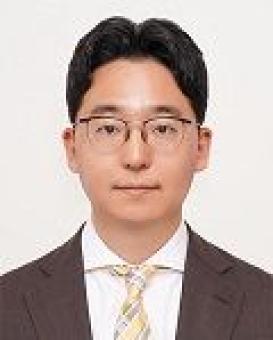
김태훈 기자 abc@kbs.co.kr
김태훈 기자의 기사 모음
-
이 기사가 좋으셨다면
-
좋아요
0
-
응원해요
0
-
후속 원해요
0










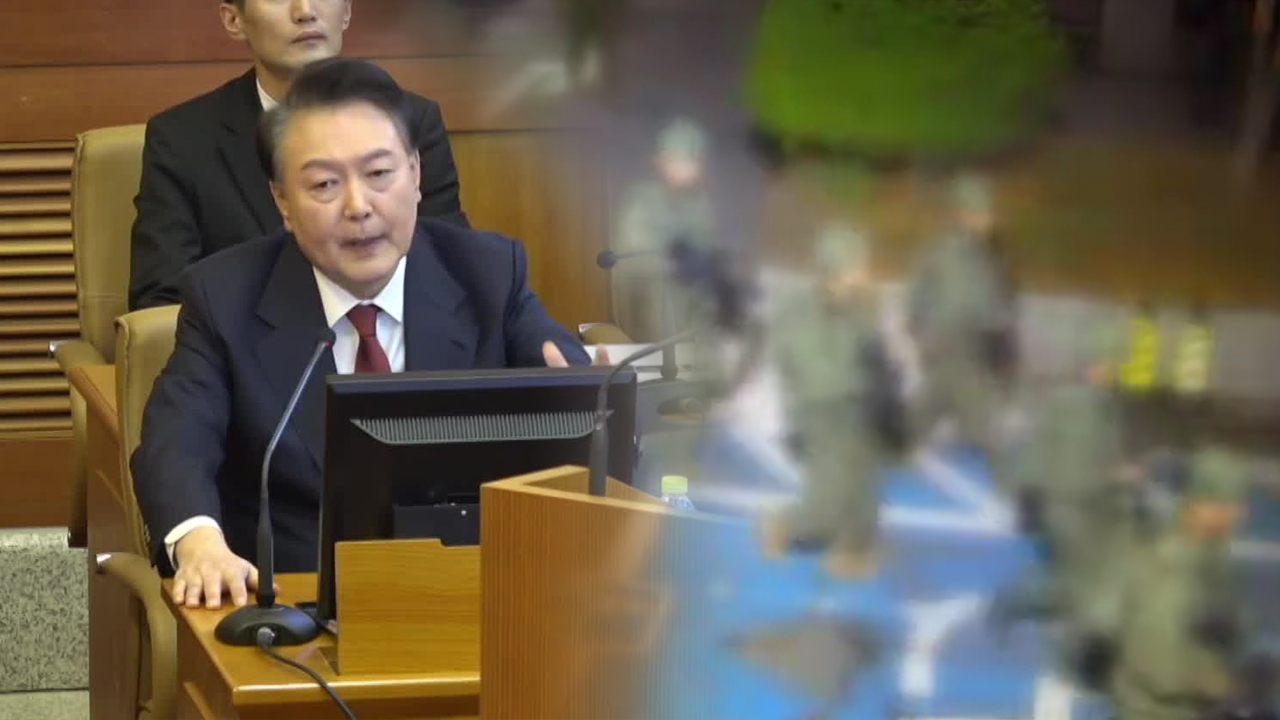
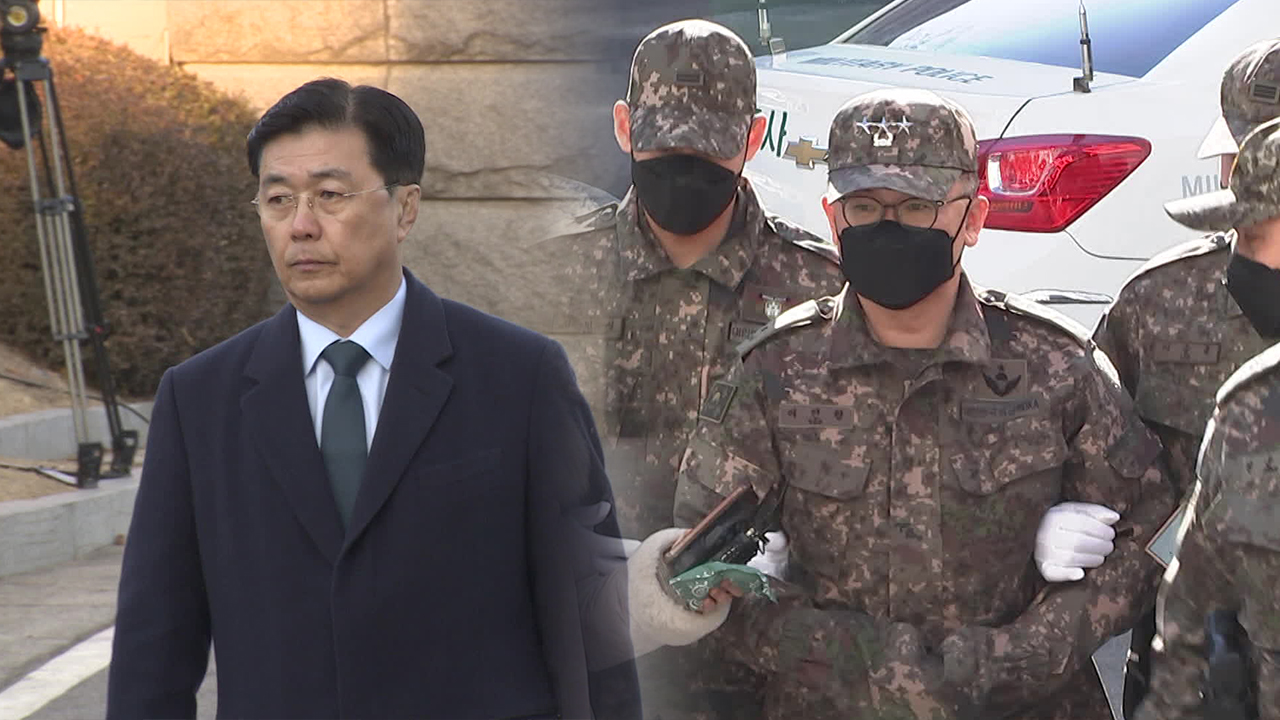
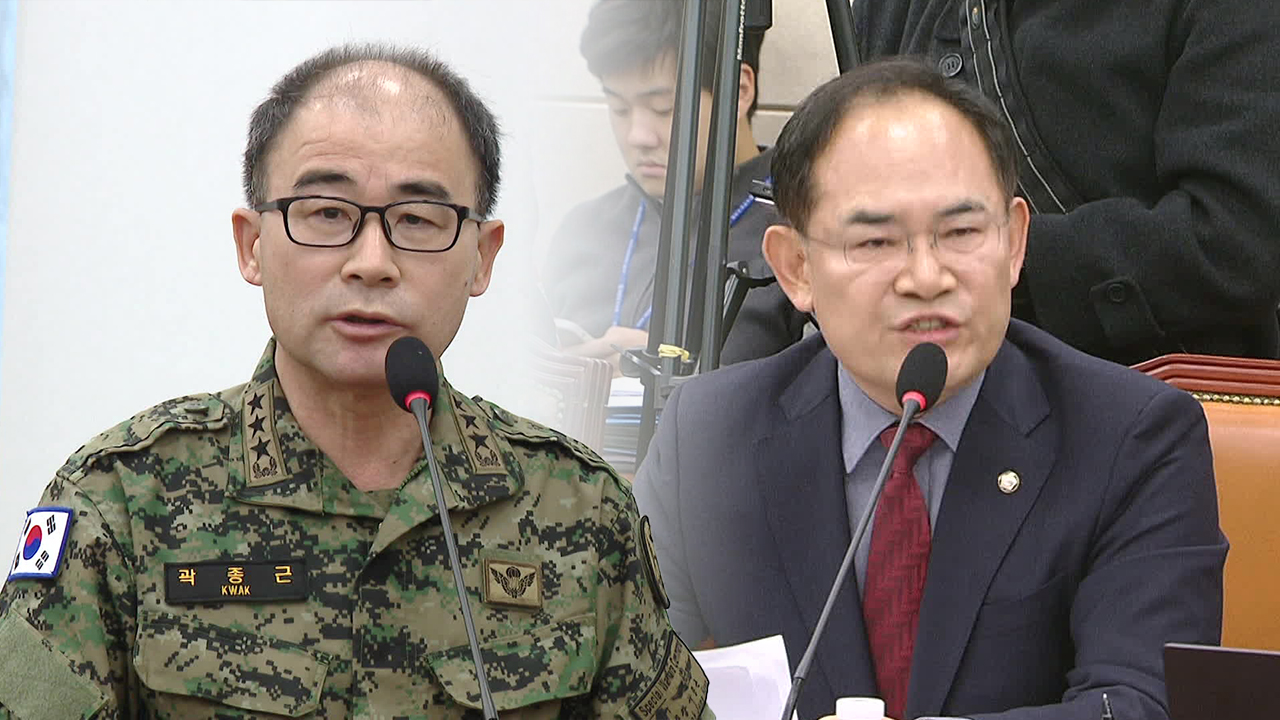
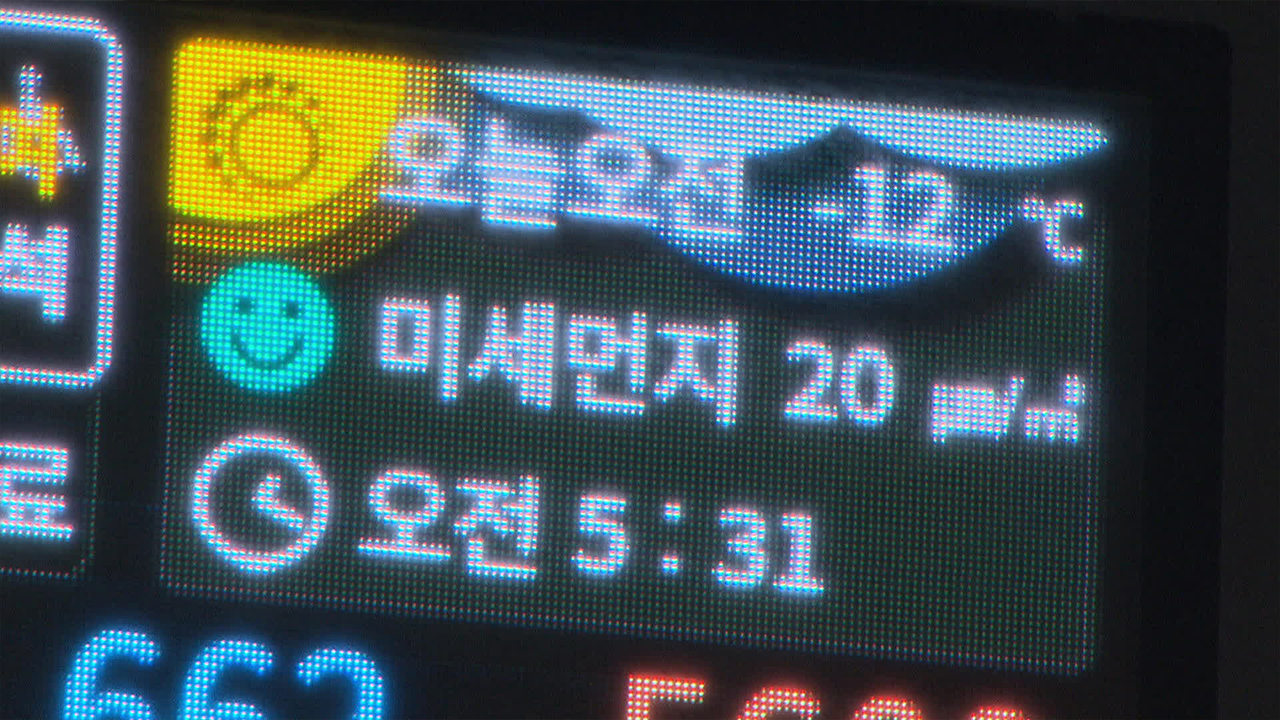

이 기사에 대한 의견을 남겨주세요.